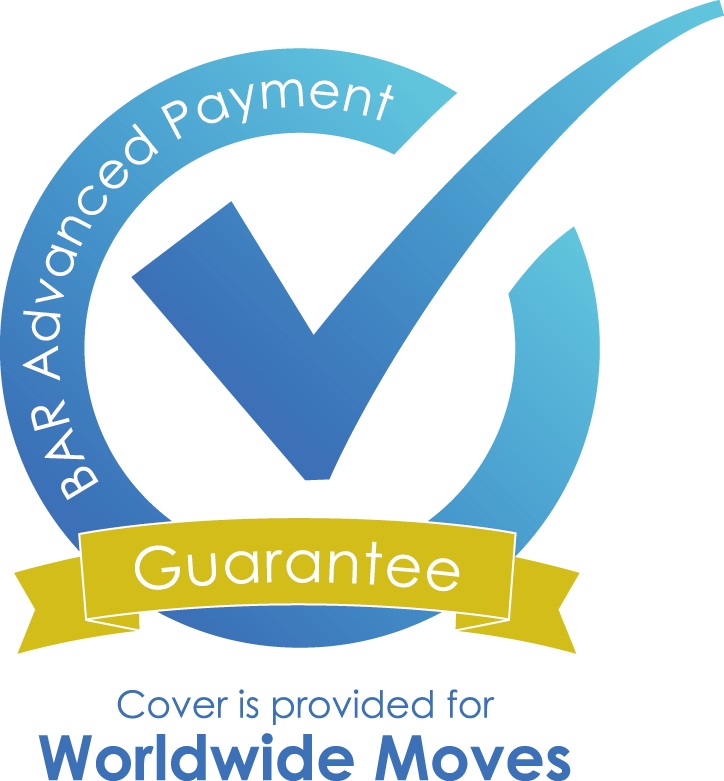Moving abroad is an exciting time, offering the opportunity of a new adventure in a new country. However, there can also be a lot of things to organise before your move, which can be daunting.
Below, we’ve put together a handy moving abroad checklist. It takes you through everything you need to do before your move, from organising your international removals to who you should notify that you’re going overseas.
Research visa and entry requirements
Once you know which country you’ll be moving to, you should research the visa and entry requirements. The visa you need might vary depending on what you’ll be doing in the country and how long you intend to stay.
Some countries require you to have a working resident’s visa if you intend to work while you live there. Many countries now offer a digital nomad visa, which allows you to work freelance for an overseas company while you live in the country. Some visas require you to show proof of employment or proof of earnings for you to be eligible.
You can usually check the government website of the country to check the various visa requirements. You will also be able to see here how long it usually takes for a visa entry to be approved, so you can plan accordingly and submit yours when needed.
Some countries may need you to have a certain amount of time left on your passport, so you’ll want to check this requirement in good time in case you need to renew yours.
Determine your finances
Before you move abroad, you should determine how much money you’ll need. This will include your flights and initial accommodation but will also include other costs, such as moving your belongings. You can get some quotes from international removal companies to give you an idea of how much this will cost.
You should also consider things like food and travel when you arrive. If you will be working abroad, think about how much time you’ll need to cover before payday. If you won’t be working when you’re overseas, you’ll have to plan your budget long-term.
If you’ll be moving overseas long-term, or are planning on earning a wage when abroad, you will usually have to open a bank account in your new home. This will make it much easier to manage your finances when you’re abroad. You may have to wait until you have an address in the new country to open a bank account, but you can research what’s available to you before you move.
Britannia has partnered with IFX to help with overseas currency transfer, offering fast and secure payments at competitive rates of exchange. They can help with moving funds abroad or to the UK as well as making regular transfers between accounts.
Find accommodation
You should consider what you want to do with accommodation when you move. If you plan to buy a home, it may be beneficial to rent somewhere short-term in the first instance. This will give you a base to look at properties when you move, so you’ll be able to ensure you’re happy with the place before you buy.
You should research the neighbourhoods to see which area might be best for you. Consider the transport links available and how close you want to be to your place of work, schools for your children, and other amenities.
You should also research the laws and regulations around buying and renting in the new country. You could contact an estate agent working in the area to help with advice.
Start learning the language
One of the best ways to learn a language is to immerse yourself in it, which you will be able to do after you’ve moved and settled in. However, it can be hugely helpful to have a base understanding of the language before you arrive. This can help you to get by while you pick up more of the language as you spend time in the country.
There are many different ways you can learn a language before you move abroad. There are various apps, such as Duolingo and Babbel that help you to learn a little of the language every day. You can also attend in-person and online classes and workshops, allowing you to speak to other people in the language you’re learning. You may have classes available locally, or there will be online options that you can join wherever you’re based.
Prepare for work
Many people move abroad with a job already secured. If this applies to you, speak to your employer about any preparations you need to make before you arrive in the country. They may be able to help with your visa, or they might take care of it completely as your sponsor.
If you plan to find work after you’ve arrived, it can be helpful to research what’s available before you move. This can give you an idea of what you should be aiming for. You should also check what will be needed when you work abroad, with regards to your visa type and the documents you’ll need.
Research schools
If you have children, you should consider how they’ll be educated in the new country. Think about whether they will attend a local school or international school.
A local school will give them the opportunity to completely immerse themselves in the local language and culture, but it can be a shock initially, especially if they don’t speak the local language. An international school will usually have a curriculum taught in your language, but there will often be fees involved.
Speak to your child about their preference and decide together the best solution. Remember that some schools can have long wait lists, so you might want to start applying before you move.
Consider your healthcare requirements
Each country will have slightly different healthcare options. Some countries may have public healthcare that’s free to use. Others may only be free for those that pay tax. Others will have healthcare that needs to be paid for, either with each use or by health insurance.
If you have a job already secured, you could speak to your employer about healthcare options – health insurance may be offered as a benefit to employees. Otherwise, you might want to look into purchasing private healthcare for you and your family, to ensure you’re covered.
Arrange travel for your pet
If your pet will be travelling abroad with you, you will need to look at transport options. Your pet is part of your family, so you should take the time to find a trusted and reliable pet transport company who will take care of your pet on their journey.
You should also speak to your vet to ensure your pet is healthy enough for the journey and look at the pet import regulations for your new country. Many locations require that pets have specific vaccinations and documentation prior to entering the country.
You can read our pet transport guide for more information on travelling abroad with your pet.
Gather your documents
Compiling all your essential documents before you move can make things much more streamlined. This will include documents such as your passport and visa, and also your birth certificate. You might also need your marriage certificate as well as qualification certificates, such as a university degree.
If you plan to drive when you’re abroad, you’ll need your driver’s licence. Some countries may require you to have an international driver’s permit, and others will need you to apply for a local licence when you arrive.
If you’re moving abroad with your family, you should aim to gather everyone’s documents into one place. If you’re moving abroad with your pet, you’ll also need to get their documents together, such as a pet passport and medical documents.
Sort your belongings
Before you move, you’ll need to decide what you’ll be taking with you, and what will be staying behind.
Once you’ve decided what you’ll be taking with you, an international removals company like Britannia Movers International can assist you with logistics. We can take care of everything, from the import documents to clearing customs and getting your belongings with you in your new home.
If you’re not taking some things with you, think about whether you want to sell them or if you want to keep them in storage. Long-term storage can be a great option if you have sentimental items that you don’t want to travel with but that you want to keep a hold of. Britannia’s storage facilities will keep your belongings safe and sound until you return.
Inform the necessary organisations of your move
One of the final steps of your move abroad is to tie up all the loose ends of your current home.
This will include closing your accounts with your utility providers, such as gas, electric and water. They will usually require a final meter reading so your final bill can be settled. You should also let your local authorities know, so you can pay anything left on your council tax bill and close your account.
Other organisations you might need to notify include the Government’s pensions office and benefits office, as well as the student loan company. You’ll need to let HMRC know you’ll be moving abroad and also inform them if you’ll be continuing to work for a UK-based company.
You should let the necessary organisations and businesses know of your new address, in case they need to contact you at any point after you’ve moved.
Moving abroad?
If you’re moving overseas, Britannia Movers International can help. With international partnerships all over the world, we can assist with every step of your move abroad, with a high-quality and efficient service.
Contact us on 0845 6006661 or email sales@britannia-movers.co.uk to find out more, or get a Quick Quote for an idea of the cost.







